Pandit Ravi Shankar, the legend who Beatle George Harrison once called the godfather of world music, breathed his last.
The legend, who Beatle George Harrison once called the godfather of world music, breathed his last.
Sitar maestro Pandit Ravi Shankar, who was facing health complications due to a pulmonary infection, had undergone surgery but his body couldn't withstand the procedure, his family said on Wednesday.
"We were at his side when he passed away. We know that you all feel our loss with us, and we thank you for all of your prayers and good wishes through this difficult time. Although it is a time for sorrow and sadness, it is also a time for all of us to give thanks and to be grateful that we were able to have him as a part of our lives," his wife Sukanya Shankar and daughter Anoushka said in a statement.
Ravi Shankar had suffered from "upper-respiratory and heart issues over the past year and underwent heart-valve replacement surgery last Thursday". "Though the surgery was successful, recovery proved too difficult for the 92-year-old musician," Sukanya said.
"His spirit and his legacy will live on forever in our hearts.”
Named Robindro Shonkar Chowdhury by his parents Shyam Shankar and Hemangini Devi who hailed from Benares, this youngest of among seven brothers hadn't seen or met his father till he was eight. The father moved to London to practice law and married there.
This is said to have left a significant impact on the little boy who became a loner. To rid him of this melancholy, he was packed off with elder brother and already well-known classical dancer Uday Shankar's troupe to Paris. By 13, he was dancing, touring, learning both dance and musical instruments at a galloping pace.
Panditji trained formally in music under the guidance of Ustad Allauddin Khan of Maihar gharana ( which draws its lineage from legendary singer in Emperor Akbar's court Mia Tansen) between 1938 and 1944. While Panditji learnt the sitar, the guru's son Ustad Ali Akbar Khan played the sarod and his daughter Roshanara Khan played both these and the sur bahar (bass sitar) with ease.
Ravi Shankar was 21 when he married the latter who was only 14. Her father got her converted and renamed as Annapurna Devi.
Despite a son Shubendro born a year later, the marriage was fraught with friction and the couple separated by the late 40s for good.
After he composed two concertos for orchestra and sitar he began working as a music director for AIR, Delhi and recording music for HMV from 1949 to 1956. Around this time Ali Akbar was invited to play abroad and his performance got rave reviews.
Panditji resigned from his job in 1956 and began undertaking tours himself. “He began with with small concerts and brought in the discipline of the South Indian Carnatic kacheri to the performances as he toured UK, Germany, and the US.
This brought him both acclaim and attention and he was invited in 1958 to participated in UNESCO's 10th anniversary celebrations at Paris. After establishing the Kinnara School of Music in Mumbai in 1956 five years later he opened a western branch in Los Angeles. As his music took the world by storm he was honoured with a Grammy for best Chamber Music performance at the Monterey Pop Festival in 1967.
His charity concert for the rebuilding of Bangladesh soon after the 1971 war, has always remained one of his best-selling albums. This brought in its wake a second Grammy. As he went from strength to strength with every European concert, it wasn't long before the other shores of the Atlantic beckoned. The North America tour however had to be truncated when he suffered a heart attack in Chicago in 1974.
In 1976, he founded the Research Institute for Music and Performing Arts in Varanasi. His remarkable works have earned him lot of praise and appreciation. From 1986 to 1992, Shankar served as a Rajya Sabha member in the Parliament of India, after being nominated by the then Indian Prime Minister, Rajiv Gandhi. He composed music for films like as Dharti ke Lal, and Neecha Nagar. He also composed the music for the popular patriotic song 'Sare Jahan Se Accha' which is, till date, the most famous version. Although he performed in many international destinations, yet he never left his connection with India.
Ravi Shankar distinct style saw him perform on the bass octave of the sitar for the alap section with quick and short deviations for the middle and high notes. This not only created a signature style but helped in promotion of the jugalbandi concert and the introduction of raagas like Tilak-Shyam, Nat-Bhairav, and Bairagi.
Always one to speak his mind, the maestro had no qualms in taking on either Lata Mangeshkar or Satyajit Ray with both of whom he had “creative differences.” Stung by the songstress playing hooky at recording session for Hrishikesh Mukherjee's film Anuradha he refused to let it slip despite overtures by her when he recorded for Gulzar's Meera and the songs were rendered by Vani Jayram.
He was also chosen to score for Ray's Apu Trilogy (1955-59) but the clash of brilliant minds saw sparks fly.
“Everything was fine till Ray became a little too conscious of his six-foot-plus stature!” Ravi Shankar had remarked to a Kolkata recordist then.
It was this straight talk which many stalwarts from the field of classical music say became the bone of contention in his private life too. The maestro who was estranged from Annapurna Devi was in a short relationship with danseuse Kamala Shastri before an intimate affair with a New York concert producer Sue Jones. His daughter from that American relationship Norah Jones was born in 1979. Another relationship with Sukanya Rajan since the 1970s, saw the couple give birth to Anoushka Shankar in 1981.
Till then he had lived with Kamala Shastri, but separated to move in with Sue Jones. However, the relationship ended in 1986. He then married Sukanya Rajan with whom he was living. Both his daughters, Norah Jones and Anoushka have come into their own as musicians.
Like music director Khayyam told DNA, “Even at 92 women would swoon when Panditji took to the stage. I am sure apsaras in heaven may be going weak-kneed by now. His beauty as person and as a musician are unparalleled.”
![submenu-img]() Sonakshi Sinha talks about life after marrying Zaheer Iqbal, reacts to pregnancy rumours: 'Hum hospital...'
Sonakshi Sinha talks about life after marrying Zaheer Iqbal, reacts to pregnancy rumours: 'Hum hospital...' ![submenu-img]() Watch: Rohit Sharma's hilarious take on Suryakumar's T20 World Cup Final catch goes viral
Watch: Rohit Sharma's hilarious take on Suryakumar's T20 World Cup Final catch goes viral![submenu-img]() Mukesh Ambani's Antilia decked up in stunning lights for Anant Ambani-Radhika Merchant wedding, watch video goes viral
Mukesh Ambani's Antilia decked up in stunning lights for Anant Ambani-Radhika Merchant wedding, watch video goes viral![submenu-img]() Maharashtra CM Eknath Shinde announces prize money for T20 World Cup-winning Team India
Maharashtra CM Eknath Shinde announces prize money for T20 World Cup-winning Team India![submenu-img]() UEFA Euro 2024: When and where to watch Portugal vs France quarter-final live on TV and online in India
UEFA Euro 2024: When and where to watch Portugal vs France quarter-final live on TV and online in India![submenu-img]() Scrapping NEET-UG exam not rational, will jeopardise interest of honest students: Centre to SC
Scrapping NEET-UG exam not rational, will jeopardise interest of honest students: Centre to SC![submenu-img]() Meet Indian science genius who won over 100 awards, inspired character played by Akshay Kumar, he is called...
Meet Indian science genius who won over 100 awards, inspired character played by Akshay Kumar, he is called...![submenu-img]() NEET PG entrance exam new date out: Exam to be held on...
NEET PG entrance exam new date out: Exam to be held on...![submenu-img]() Meet India's youngest Chartered Accountant, completed PG at 18, holds double Guinness Record for...
Meet India's youngest Chartered Accountant, completed PG at 18, holds double Guinness Record for...![submenu-img]() Meet Indian genius, who worked on NASA's Rs 73700 crore project, married to a scientist, she is...
Meet Indian genius, who worked on NASA's Rs 73700 crore project, married to a scientist, she is...![submenu-img]() UK PM Rishi Sunak Resigns, Concedes Defeat To Keir Starmer In UK Polls As Labour Wins Over 300 Seats
UK PM Rishi Sunak Resigns, Concedes Defeat To Keir Starmer In UK Polls As Labour Wins Over 300 Seats![submenu-img]() Rahul Gandhi Meets The Victims Of Hathras Stampede, Assures Full Support From Congress
Rahul Gandhi Meets The Victims Of Hathras Stampede, Assures Full Support From Congress![submenu-img]() UK PM Rishi Sunak Resigns, Concedes Defeat To Keir Starmer In UK Polls As Labour Wins Over 300 Seats
UK PM Rishi Sunak Resigns, Concedes Defeat To Keir Starmer In UK Polls As Labour Wins Over 300 Seats![submenu-img]() Breaking News: Fire Breaks Out At Logix Mall In Noida, Rescue Operation Underway | Uttar Pradesh
Breaking News: Fire Breaks Out At Logix Mall In Noida, Rescue Operation Underway | Uttar Pradesh![submenu-img]() Hathras Stampede: What Caused Hathras Stampede, Victim’s Daughter Narrates Horrific Mishap
Hathras Stampede: What Caused Hathras Stampede, Victim’s Daughter Narrates Horrific Mishap![submenu-img]() DNA Verified: Did Kangana Ranaut party with gangster Abu Salem? Actress reveals who's with her in viral photo
DNA Verified: Did Kangana Ranaut party with gangster Abu Salem? Actress reveals who's with her in viral photo![submenu-img]() DNA Verified: New Delhi Railway Station to be closed for 4 years? Know the truth here
DNA Verified: New Delhi Railway Station to be closed for 4 years? Know the truth here![submenu-img]() DNA Verified: Did RSS chief Mohan Bhagwat praise Congress during Lok Sabha Elections 2024? Know the truth here
DNA Verified: Did RSS chief Mohan Bhagwat praise Congress during Lok Sabha Elections 2024? Know the truth here![submenu-img]() DNA Verified: Is CAA an anti-Muslim law? Centre terms news report as 'misleading'
DNA Verified: Is CAA an anti-Muslim law? Centre terms news report as 'misleading'![submenu-img]() DNA Verified: Lok Sabha Elections 2024 to be held on April 19? Know truth behind viral message
DNA Verified: Lok Sabha Elections 2024 to be held on April 19? Know truth behind viral message![submenu-img]() Kamal Haasan's Indian 2 gets U/A certificate, CBFC asks these 5 changes, including replacement of...
Kamal Haasan's Indian 2 gets U/A certificate, CBFC asks these 5 changes, including replacement of...![submenu-img]() In pics: Team India's T20 World Cup victory parade in Mumbai
In pics: Team India's T20 World Cup victory parade in Mumbai![submenu-img]() Meet actor who worked as door-to-door salesman, earned Rs 1600, struggled for 3 years after debut, became star with...
Meet actor who worked as door-to-door salesman, earned Rs 1600, struggled for 3 years after debut, became star with...![submenu-img]() From Salman Khan, Justin Bieber to Karan Aujla, check full list of star performances at Anant Ambani-Radhika's sangeet
From Salman Khan, Justin Bieber to Karan Aujla, check full list of star performances at Anant Ambani-Radhika's sangeet![submenu-img]() 5 warm moments Ranveer Singh shared with fans that show why he is their favourite
5 warm moments Ranveer Singh shared with fans that show why he is their favourite![submenu-img]() Anvita Group takes up Rs 2000 crore mega residential realty project
Anvita Group takes up Rs 2000 crore mega residential realty project![submenu-img]() Love problem solution in Canada, USA, UK - Astrologer Manish Sharma
Love problem solution in Canada, USA, UK - Astrologer Manish Sharma ![submenu-img]() Out on parole, Amritpal Singh, Engineer Rashid take oath as Lok Sabha MPs
Out on parole, Amritpal Singh, Engineer Rashid take oath as Lok Sabha MPs![submenu-img]() 'Will be engaging experts...': Assam CM Himanta Biswa Sarma visits flood-hit areas in Dibrugarh
'Will be engaging experts...': Assam CM Himanta Biswa Sarma visits flood-hit areas in Dibrugarh![submenu-img]() Weather update: Delhi-NCR likely to receive moderate rainfall with thunderstorms today, check IMD forecast
Weather update: Delhi-NCR likely to receive moderate rainfall with thunderstorms today, check IMD forecast![submenu-img]() Lok Sabha Speaker's Election: What does the Constitution say?
Lok Sabha Speaker's Election: What does the Constitution say?![submenu-img]() Explained: Why is Kerala demanding to change its name to Keralam?
Explained: Why is Kerala demanding to change its name to Keralam?![submenu-img]() DNA Explainer: What is Kafala system that is prevalent in gulf countries? Why is it considered extremely brutal?
DNA Explainer: What is Kafala system that is prevalent in gulf countries? Why is it considered extremely brutal? ![submenu-img]() Lok Sabha Elections 2024: What are exit polls? When and how are they conducted?
Lok Sabha Elections 2024: What are exit polls? When and how are they conducted?![submenu-img]() DNA Explainer: Why was Iranian president Ebrahim Raisi seen as possible successor to Ayatollah Khamenei?
DNA Explainer: Why was Iranian president Ebrahim Raisi seen as possible successor to Ayatollah Khamenei?![submenu-img]() Sonakshi Sinha talks about life after marrying Zaheer Iqbal, reacts to pregnancy rumours: 'Hum hospital...'
Sonakshi Sinha talks about life after marrying Zaheer Iqbal, reacts to pregnancy rumours: 'Hum hospital...' ![submenu-img]() Meet singer with Rs 2350 net worth performing at Anant Ambani-Radhika Merchant's sangeet ceremony, he owns...
Meet singer with Rs 2350 net worth performing at Anant Ambani-Radhika Merchant's sangeet ceremony, he owns...![submenu-img]() How many crores is Badshah charging on Anant Ambani, Radhika Merchant's sangeet ceremony
How many crores is Badshah charging on Anant Ambani, Radhika Merchant's sangeet ceremony![submenu-img]() Samantha slammed by doctor for spreading 'misinformation' about alternate therapies: 'She is a serial offender'
Samantha slammed by doctor for spreading 'misinformation' about alternate therapies: 'She is a serial offender'![submenu-img]() After criticising Kalki, Mukesh Khanna makes another big statement against Prabhas film, claims Shaktimaan will be..
After criticising Kalki, Mukesh Khanna makes another big statement against Prabhas film, claims Shaktimaan will be..![submenu-img]() Mukesh Ambani's Antilia decked up in stunning lights for Anant Ambani-Radhika Merchant wedding, watch video goes viral
Mukesh Ambani's Antilia decked up in stunning lights for Anant Ambani-Radhika Merchant wedding, watch video goes viral![submenu-img]() In a first, robot commits suicide because he was made to do...
In a first, robot commits suicide because he was made to do...![submenu-img]() NASA reveals 120-foot asteroid, as big as a plane, will approach Earth on this day at a massive speed of...
NASA reveals 120-foot asteroid, as big as a plane, will approach Earth on this day at a massive speed of... ![submenu-img]() Inside pics of Dubai villa that Mukesh Ambani, Nita Ambani gifted their 'choti bahu' Radhika Merchant, it is worth Rs…
Inside pics of Dubai villa that Mukesh Ambani, Nita Ambani gifted their 'choti bahu' Radhika Merchant, it is worth Rs…![submenu-img]() Anant Ambani-Radhika Merchant wedding: Who all are invited by Mukesh Ambani, Nita Ambani for the grand wedding
Anant Ambani-Radhika Merchant wedding: Who all are invited by Mukesh Ambani, Nita Ambani for the grand wedding
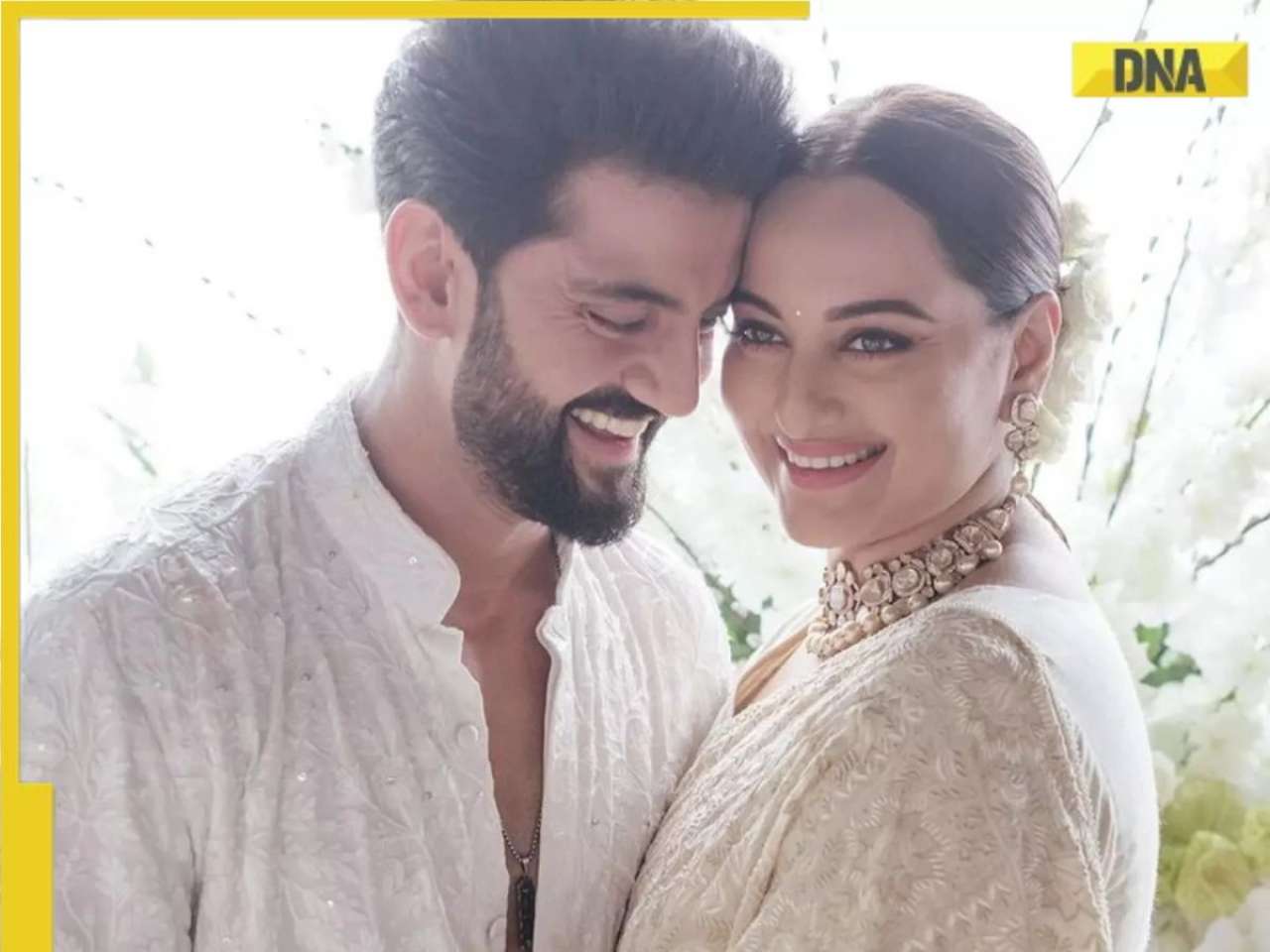
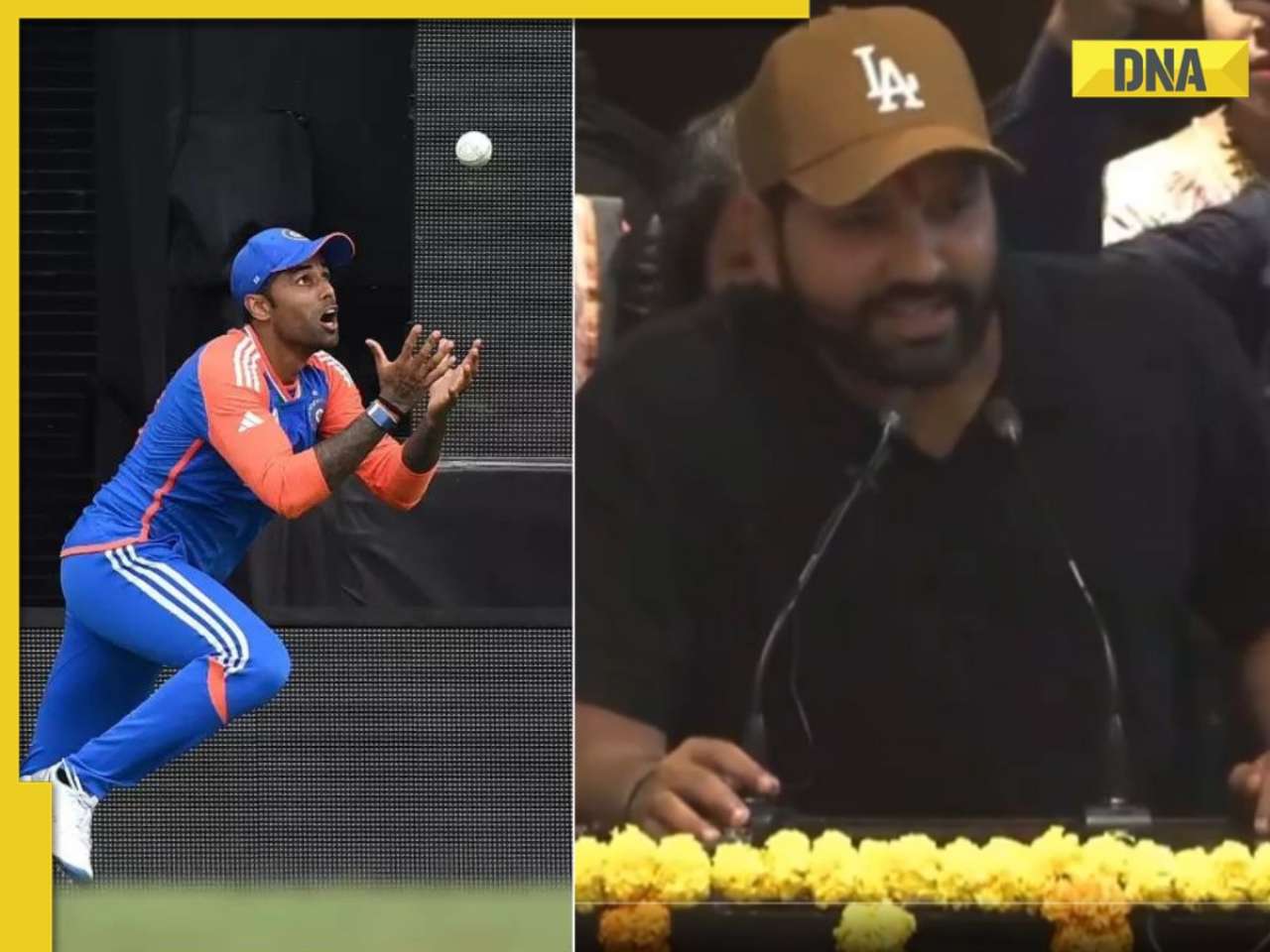
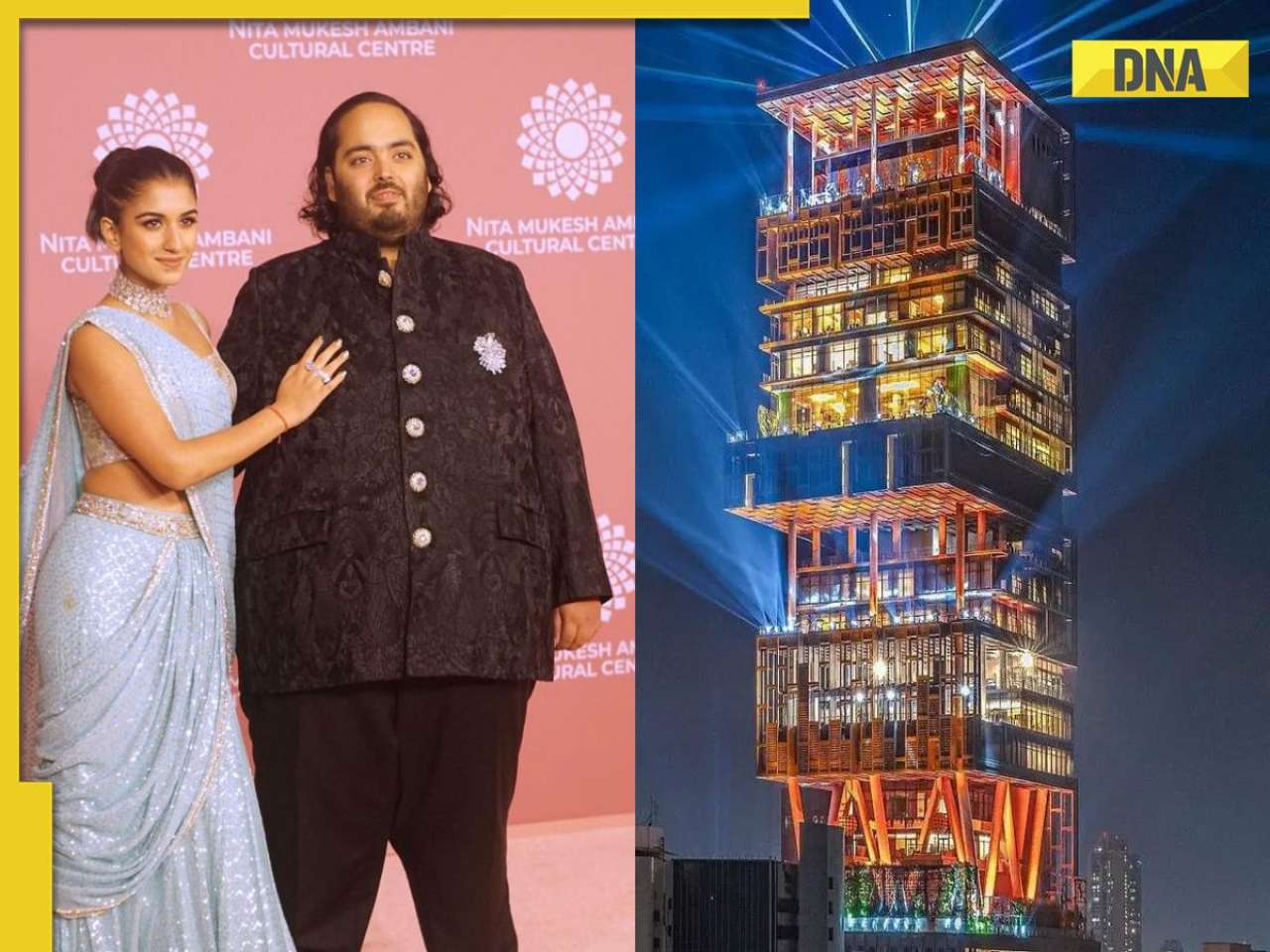
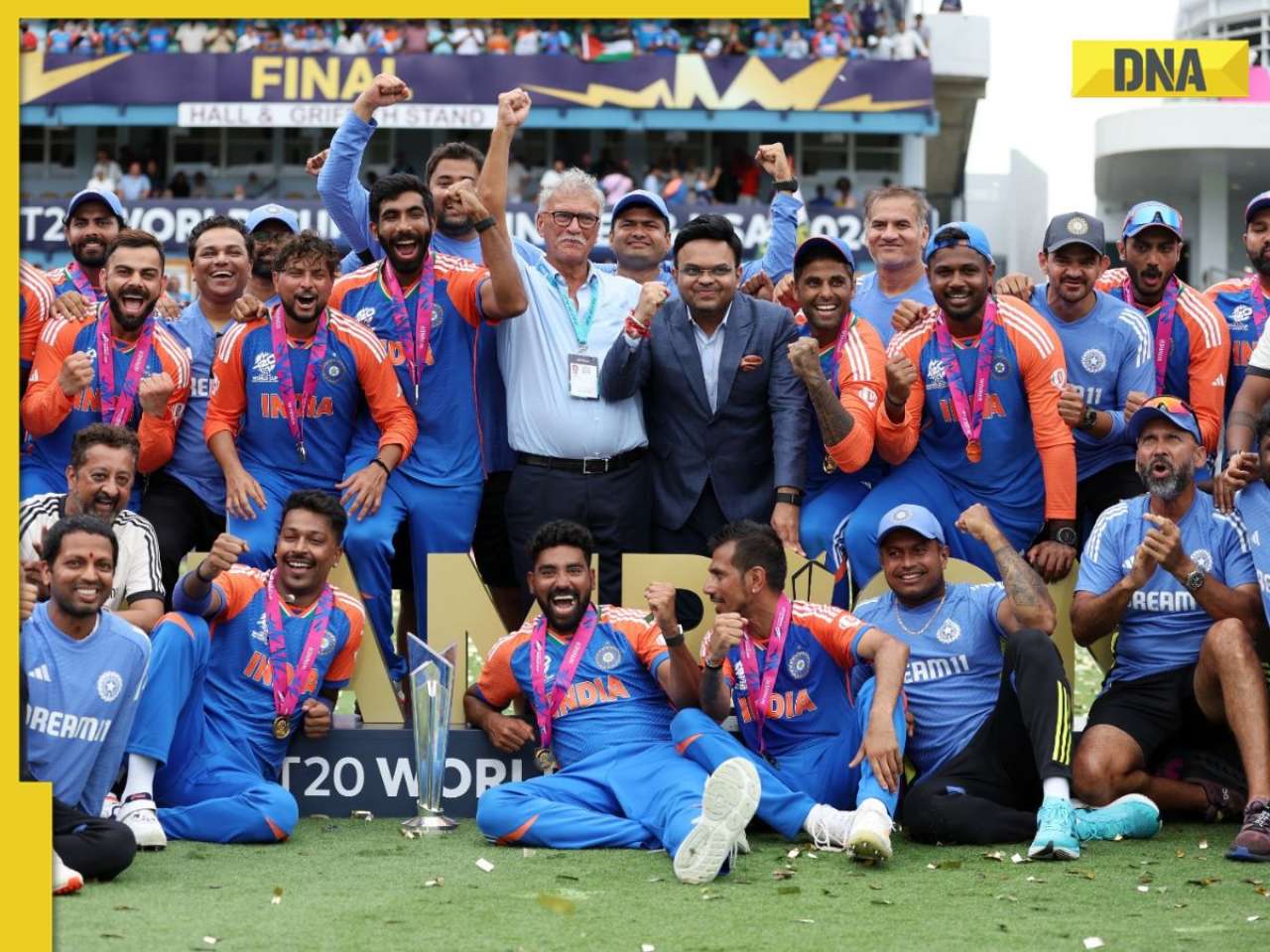





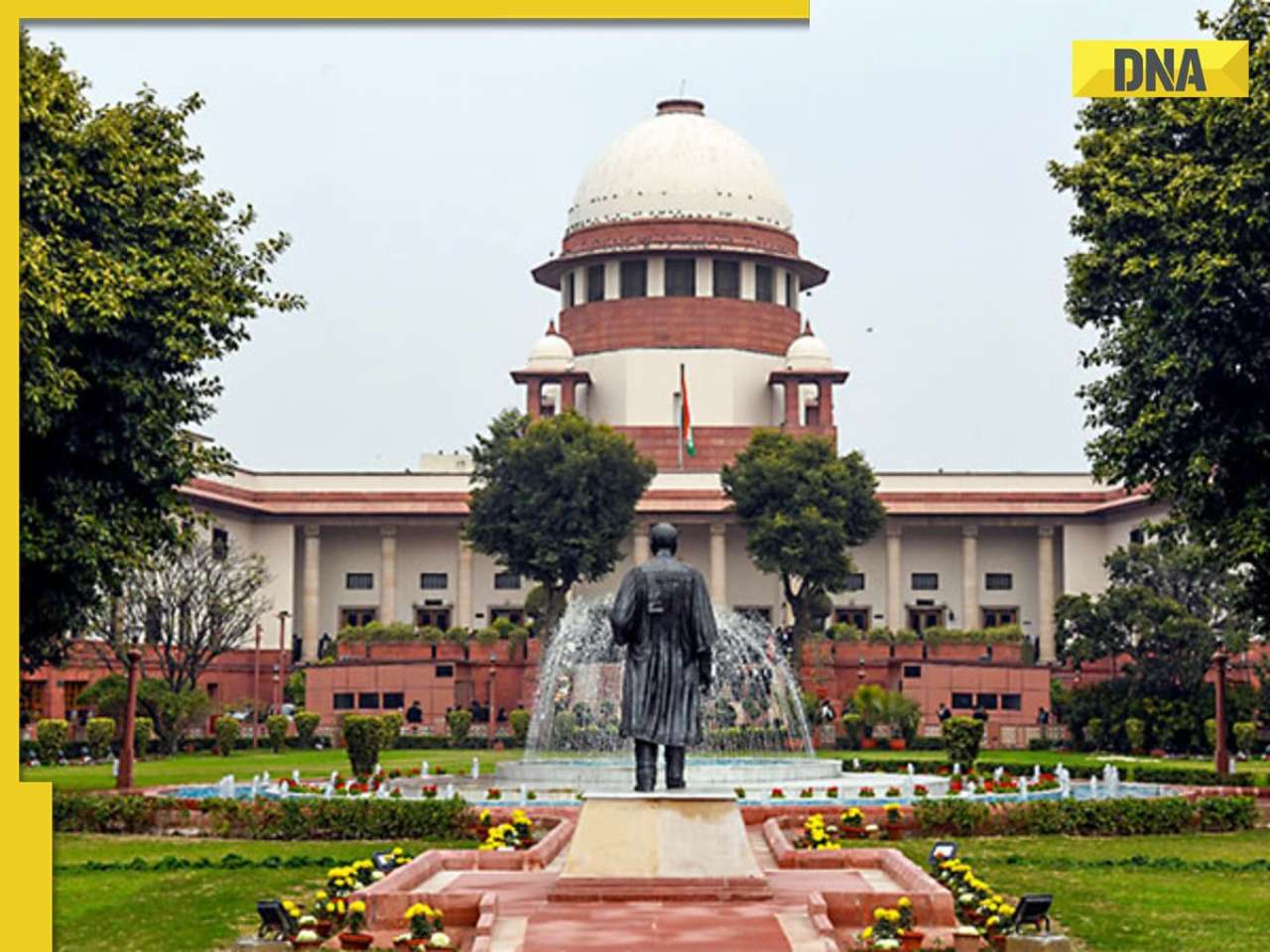
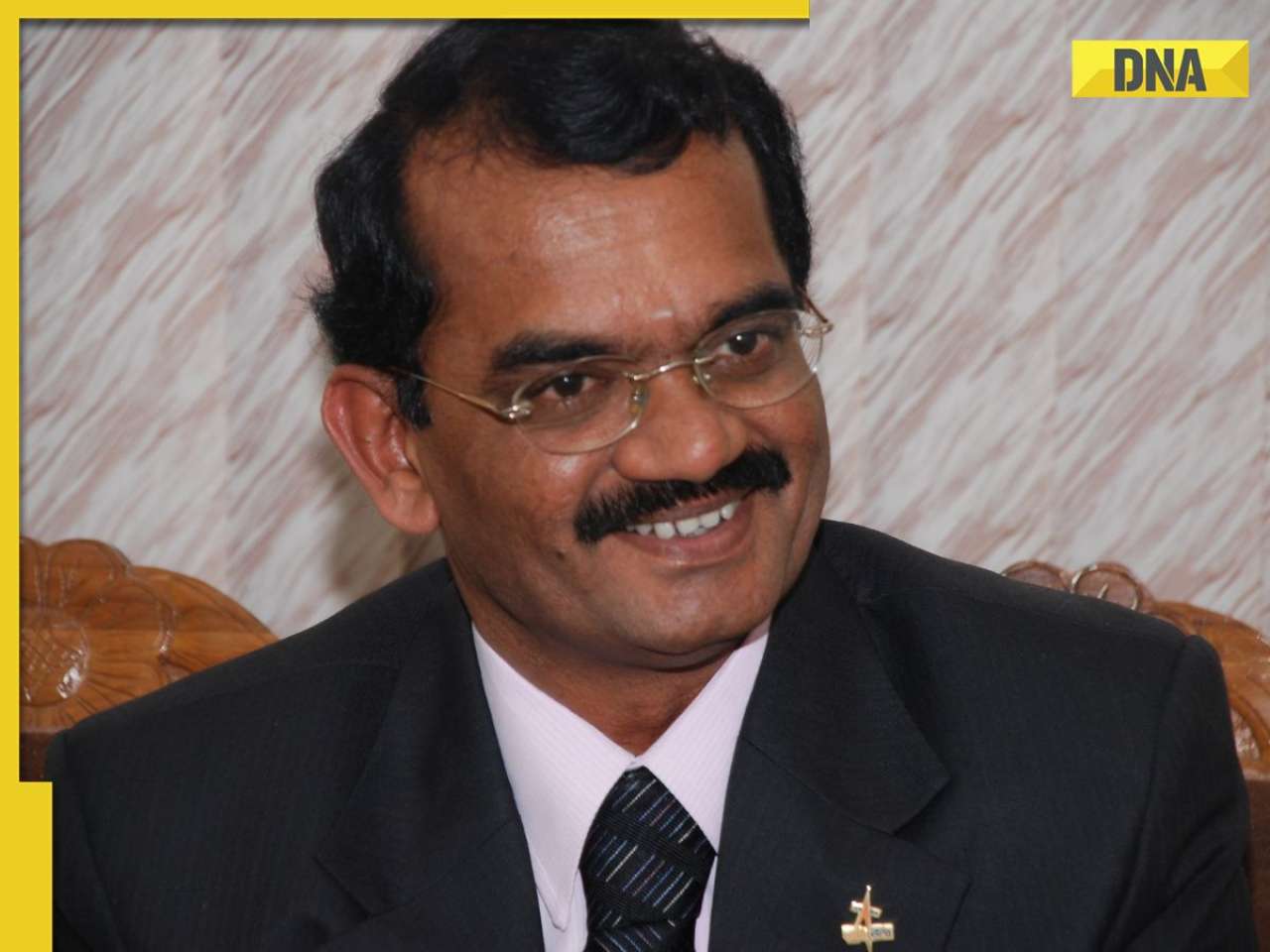


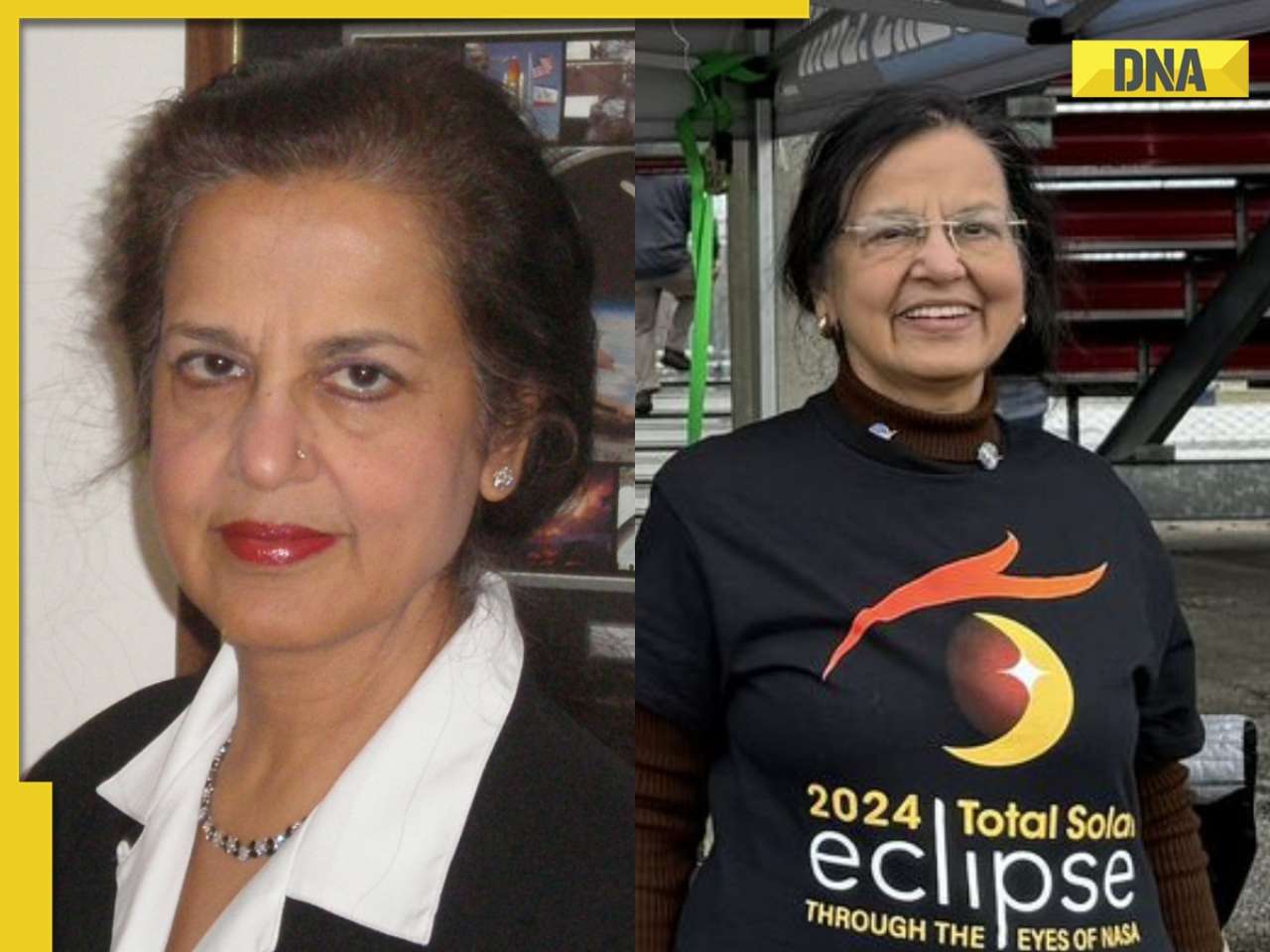















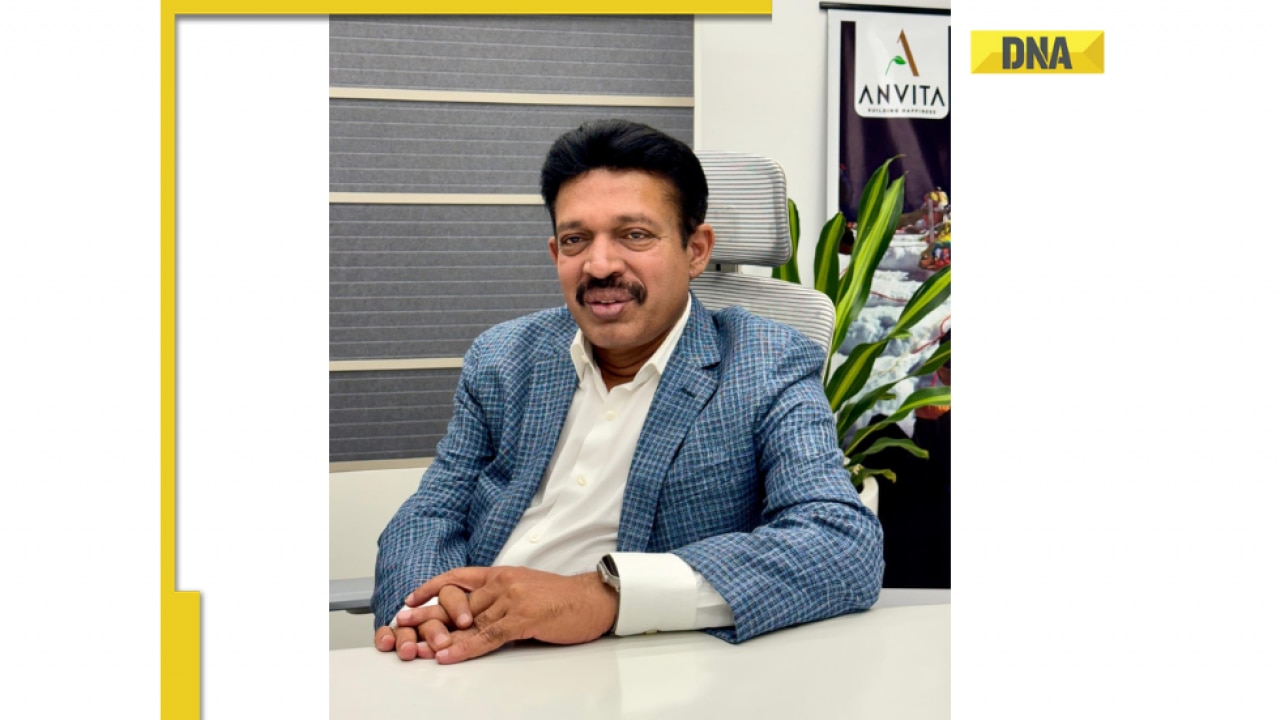

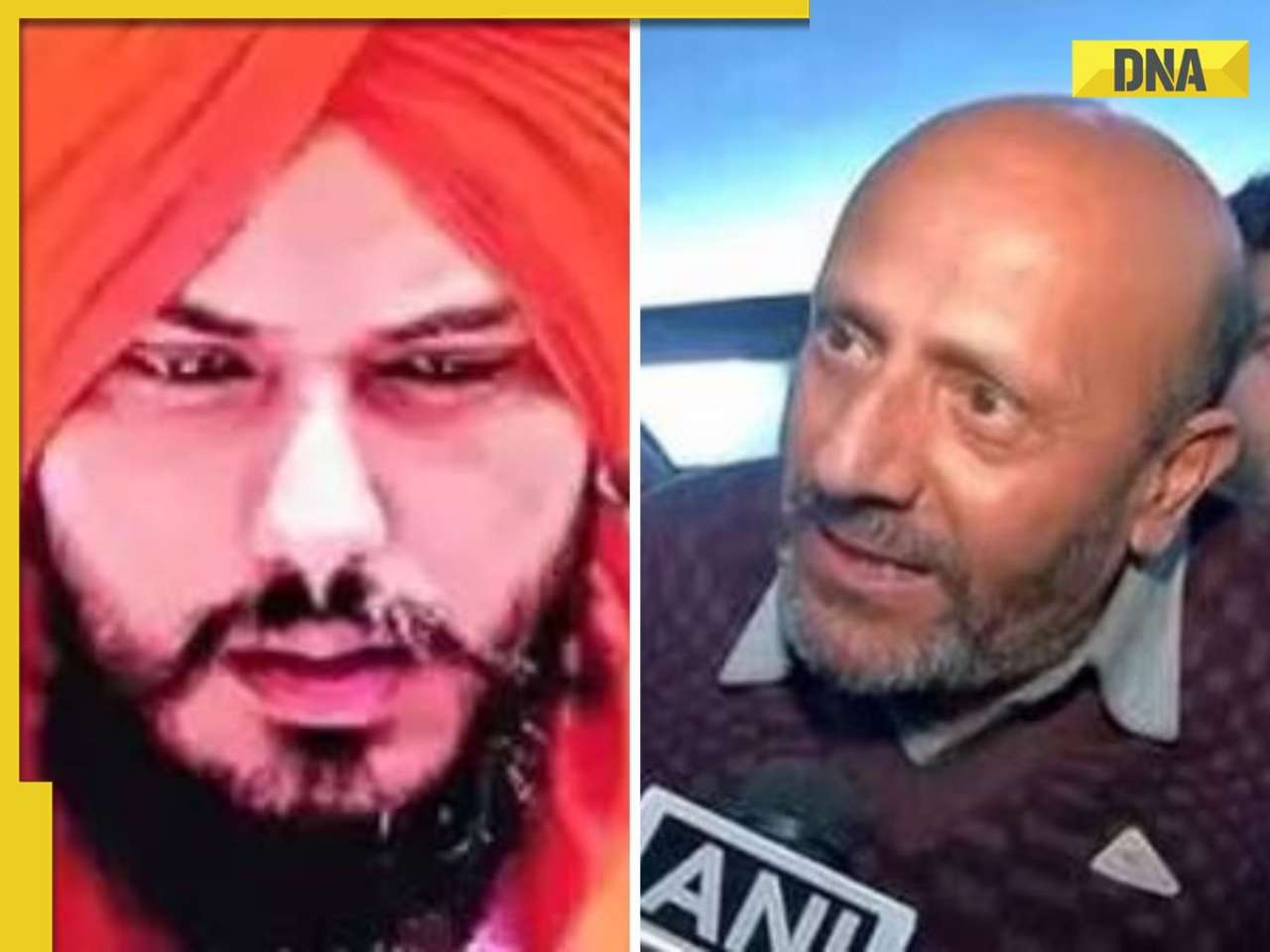
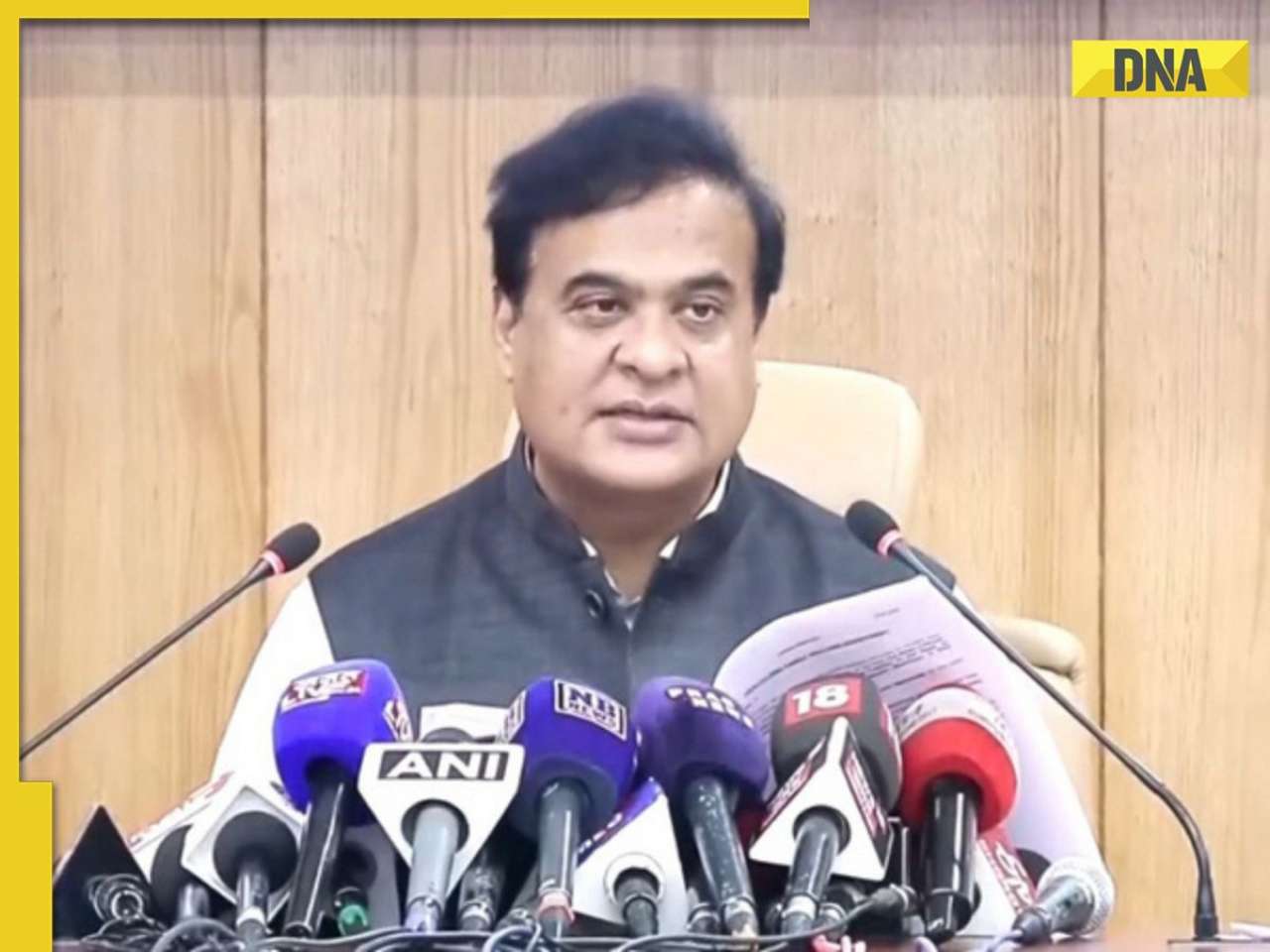

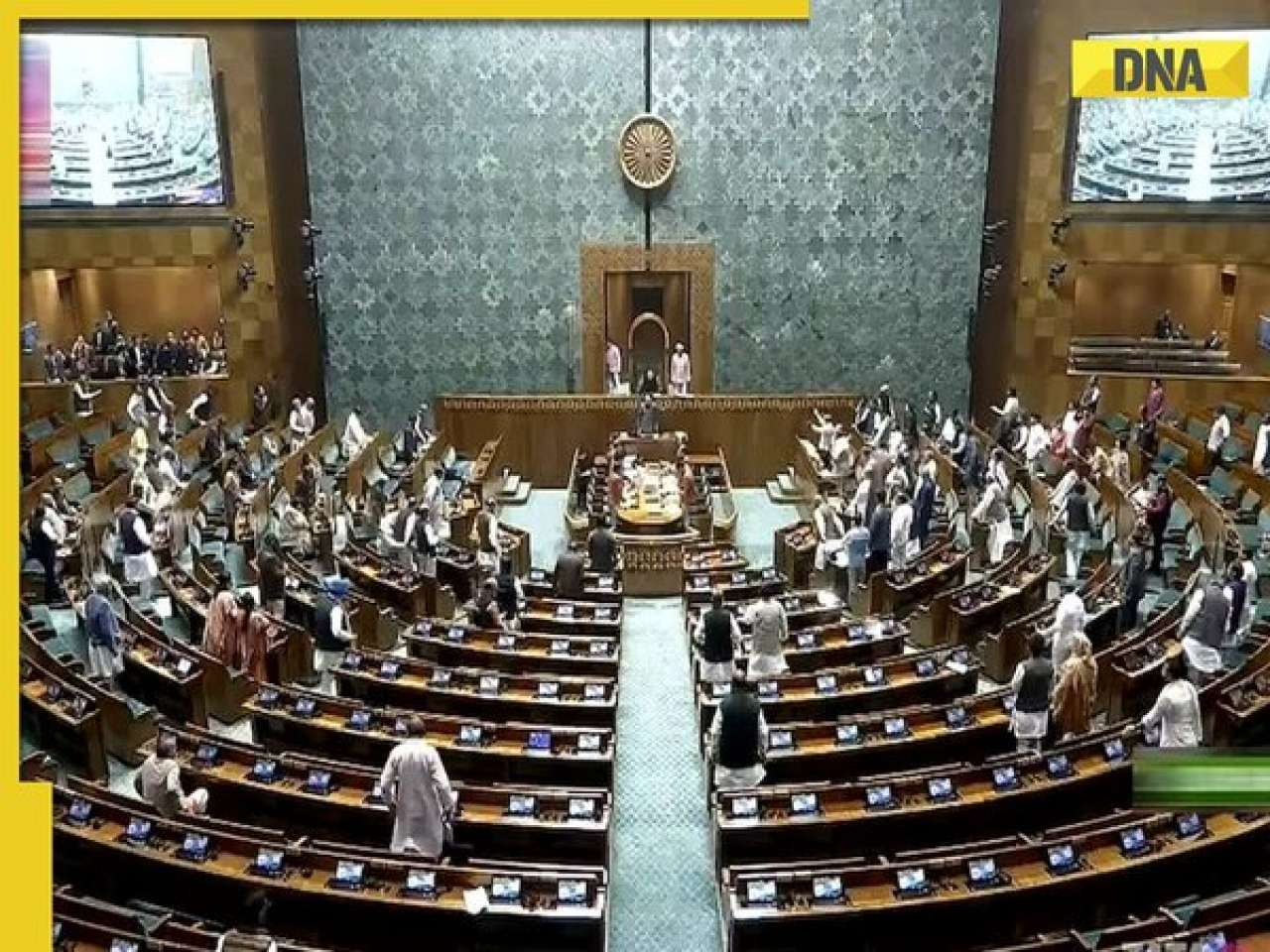
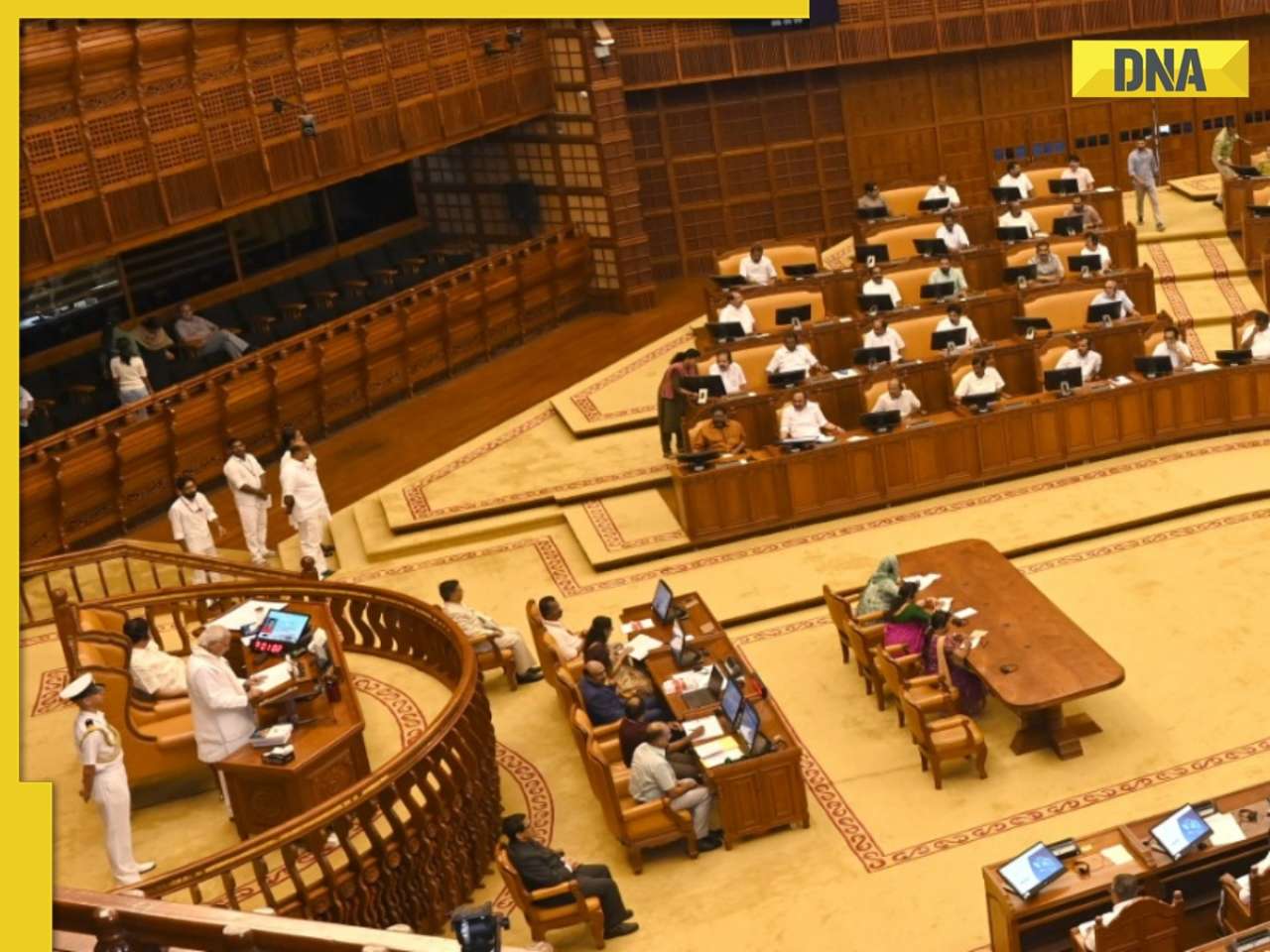









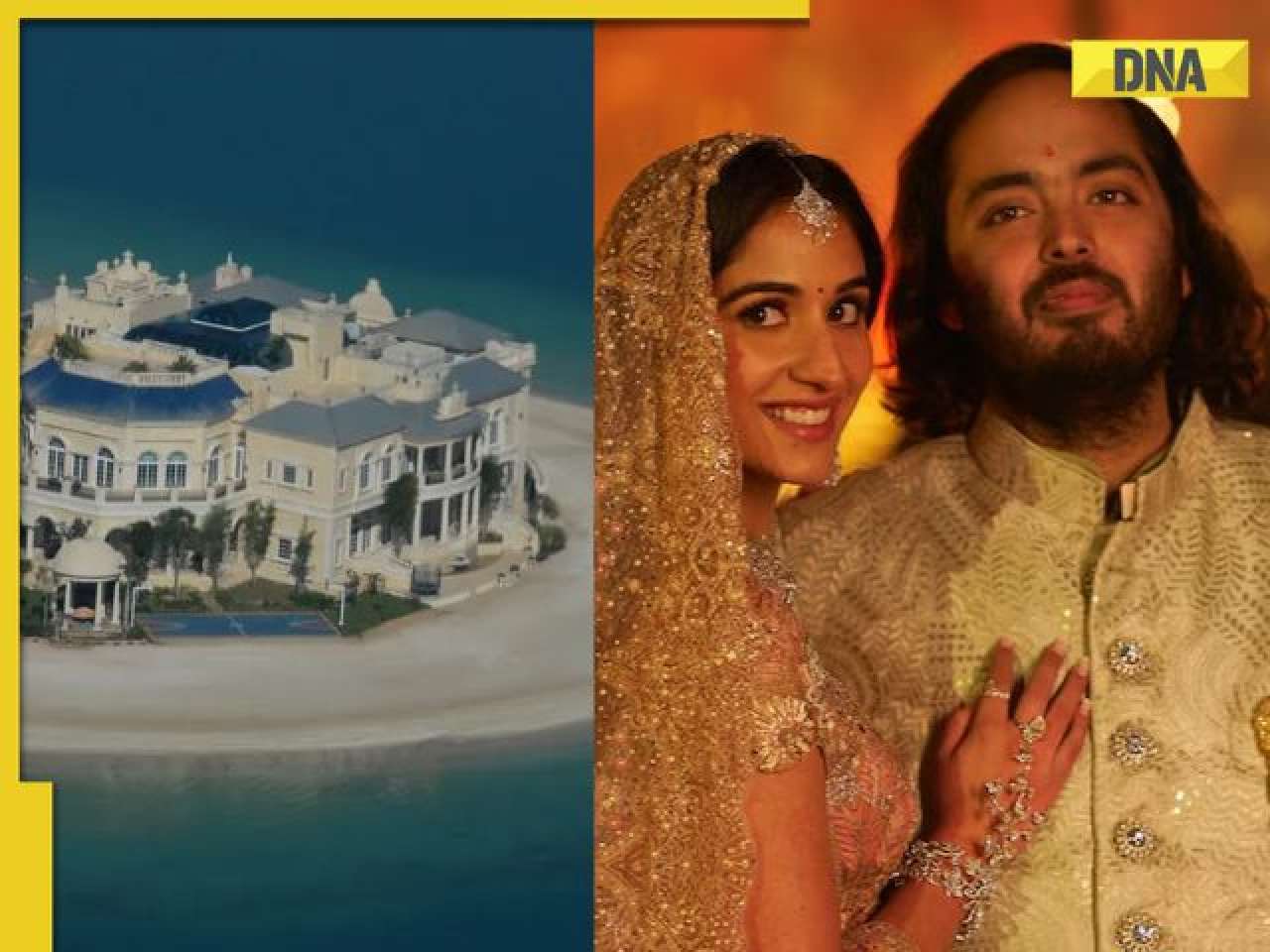
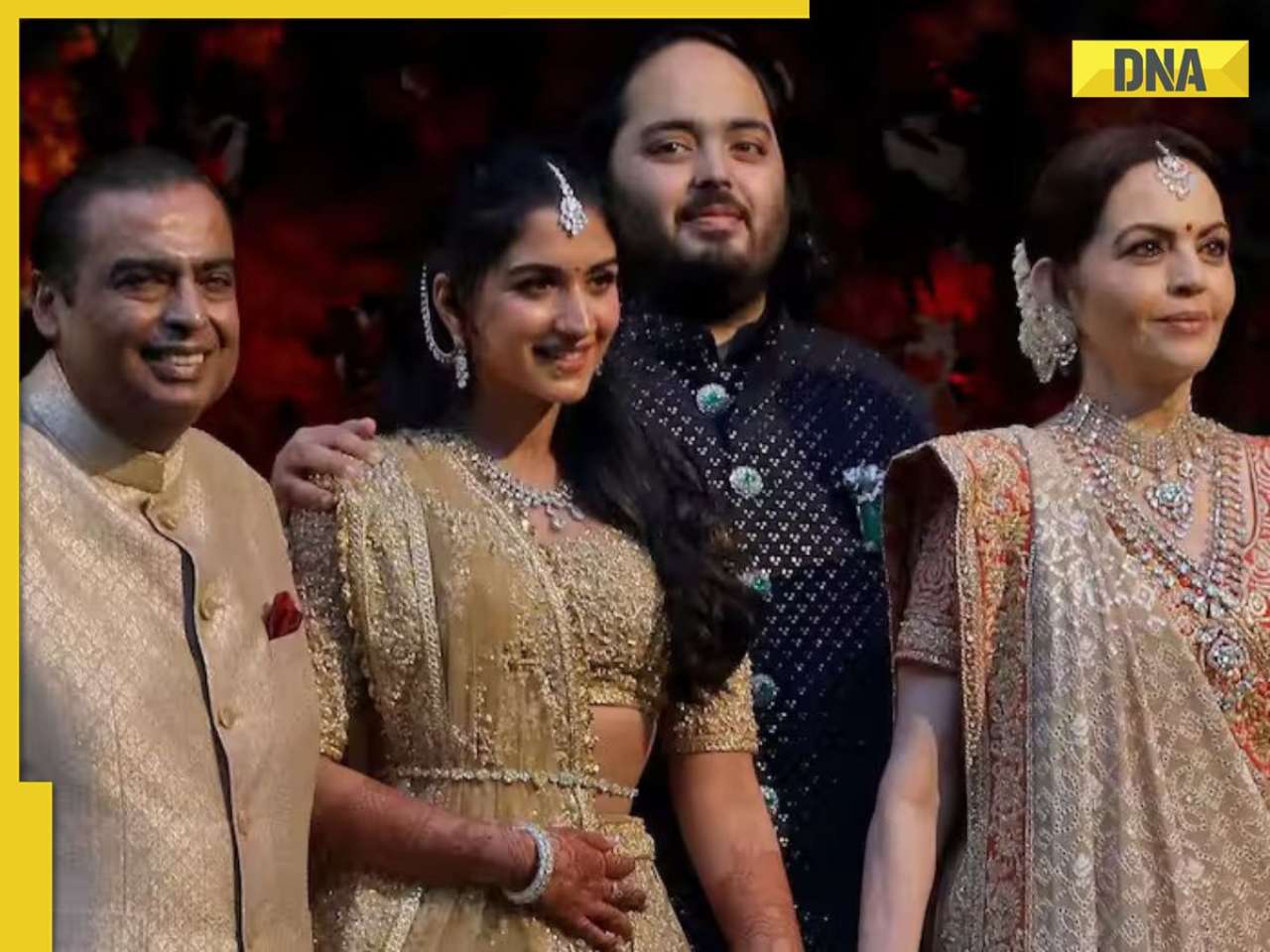

)

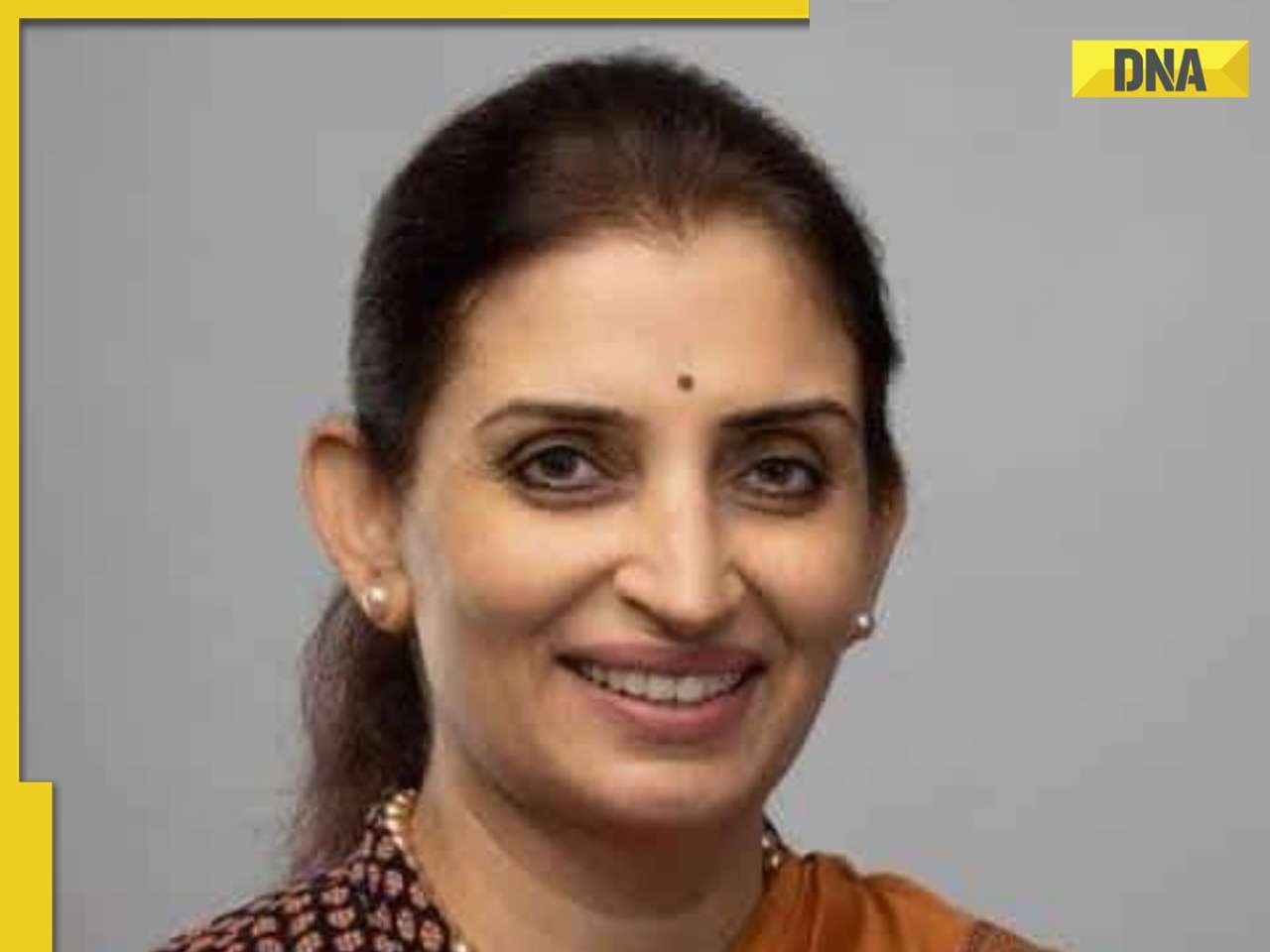
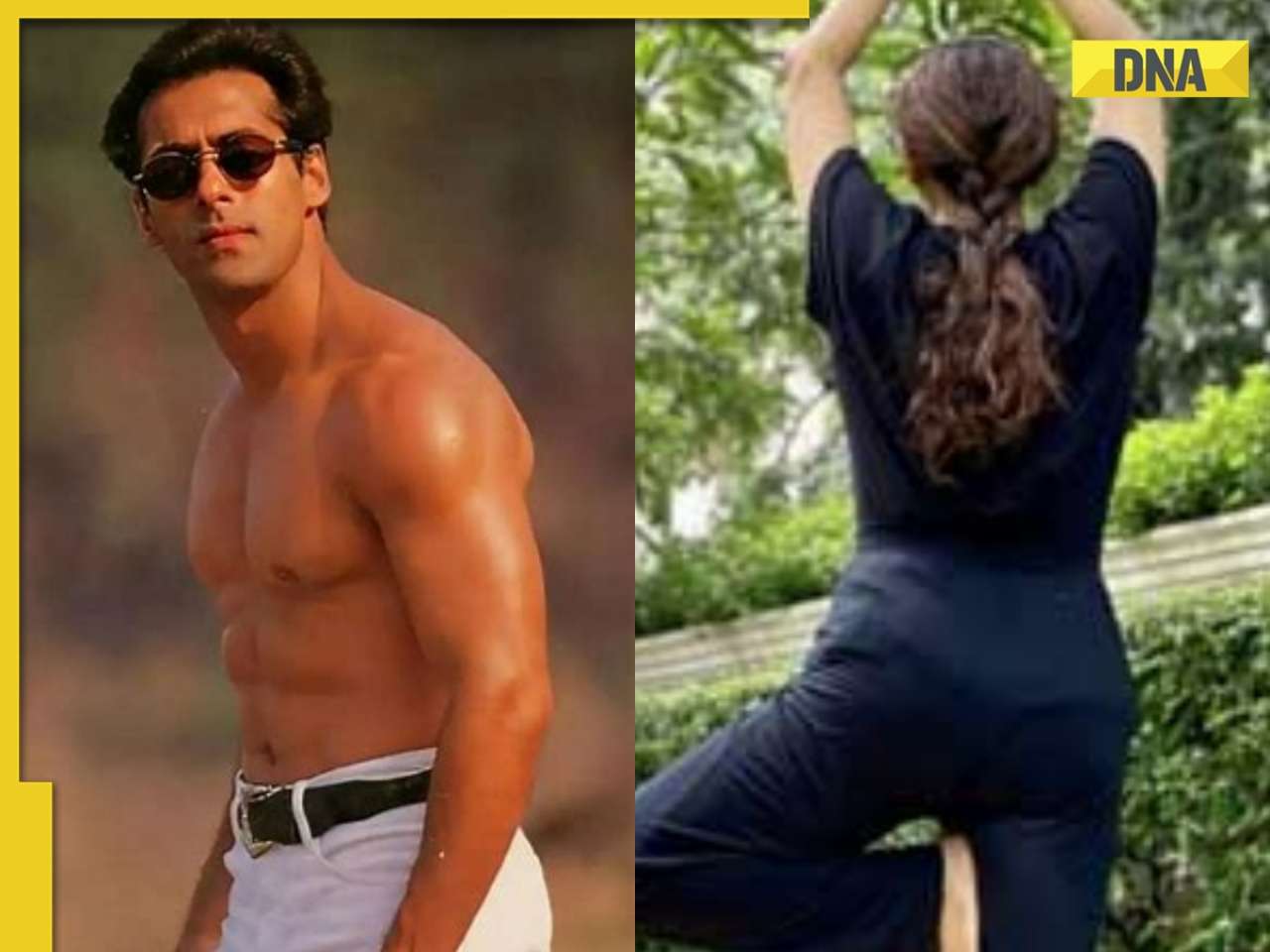
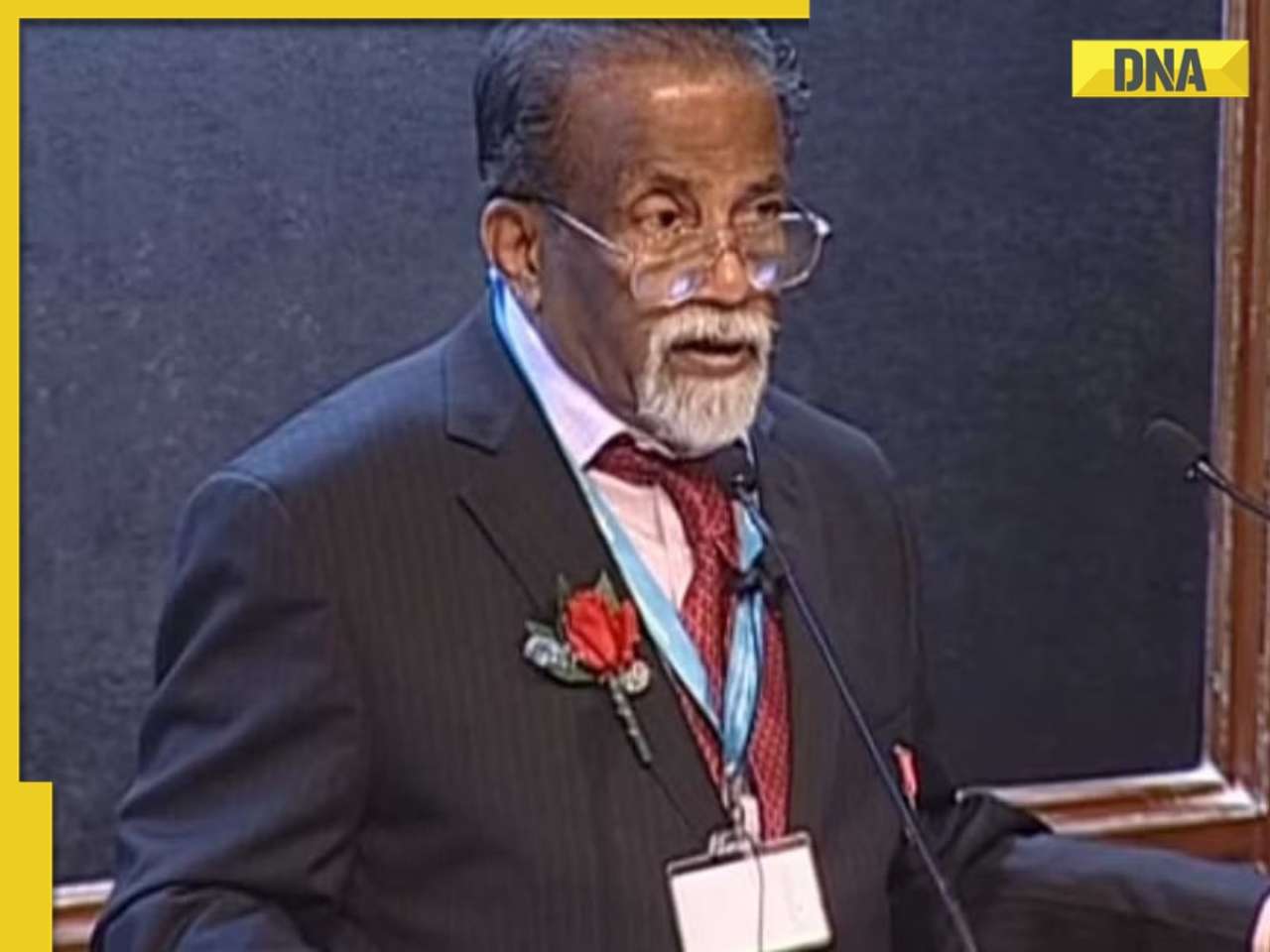
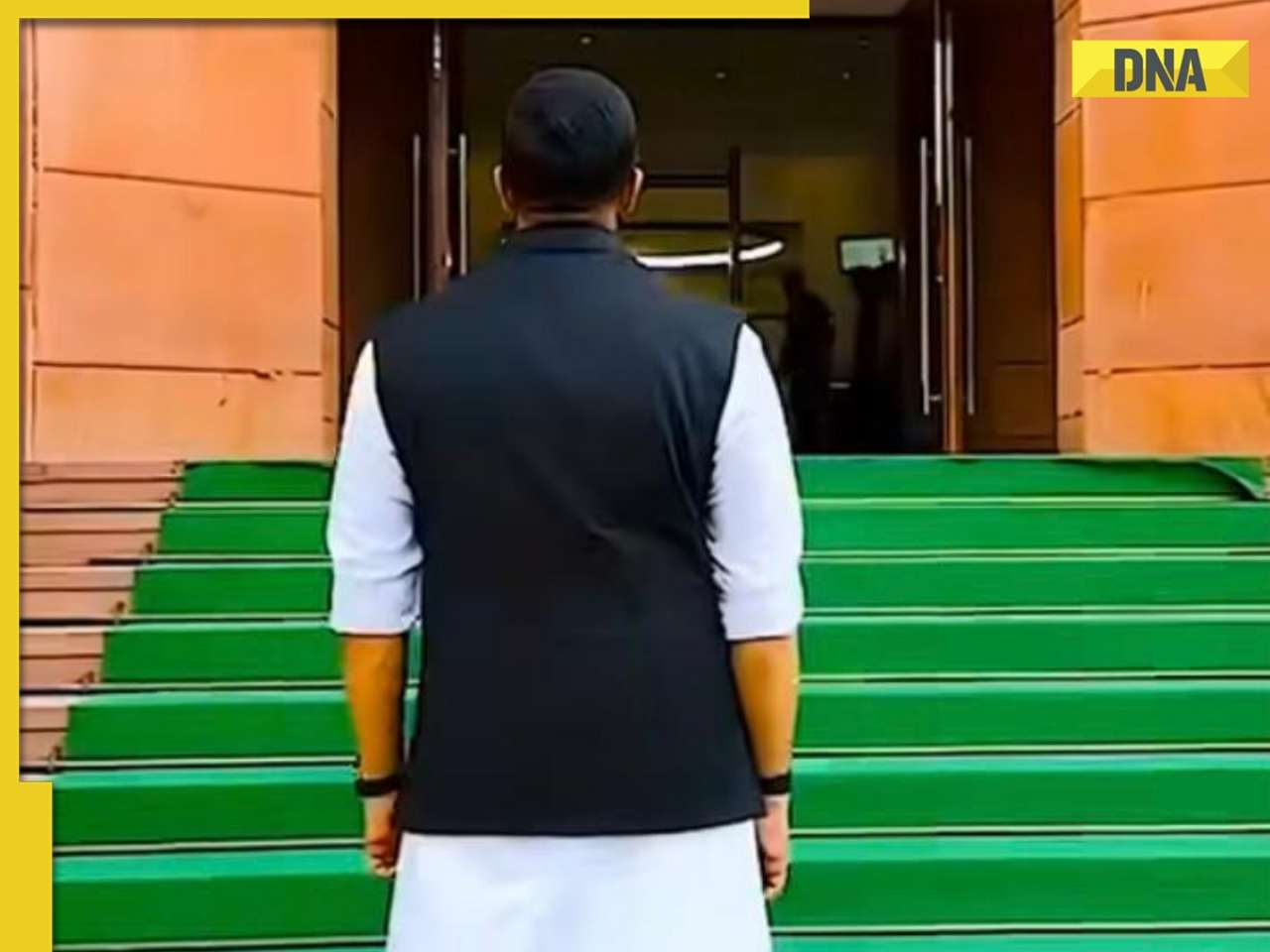
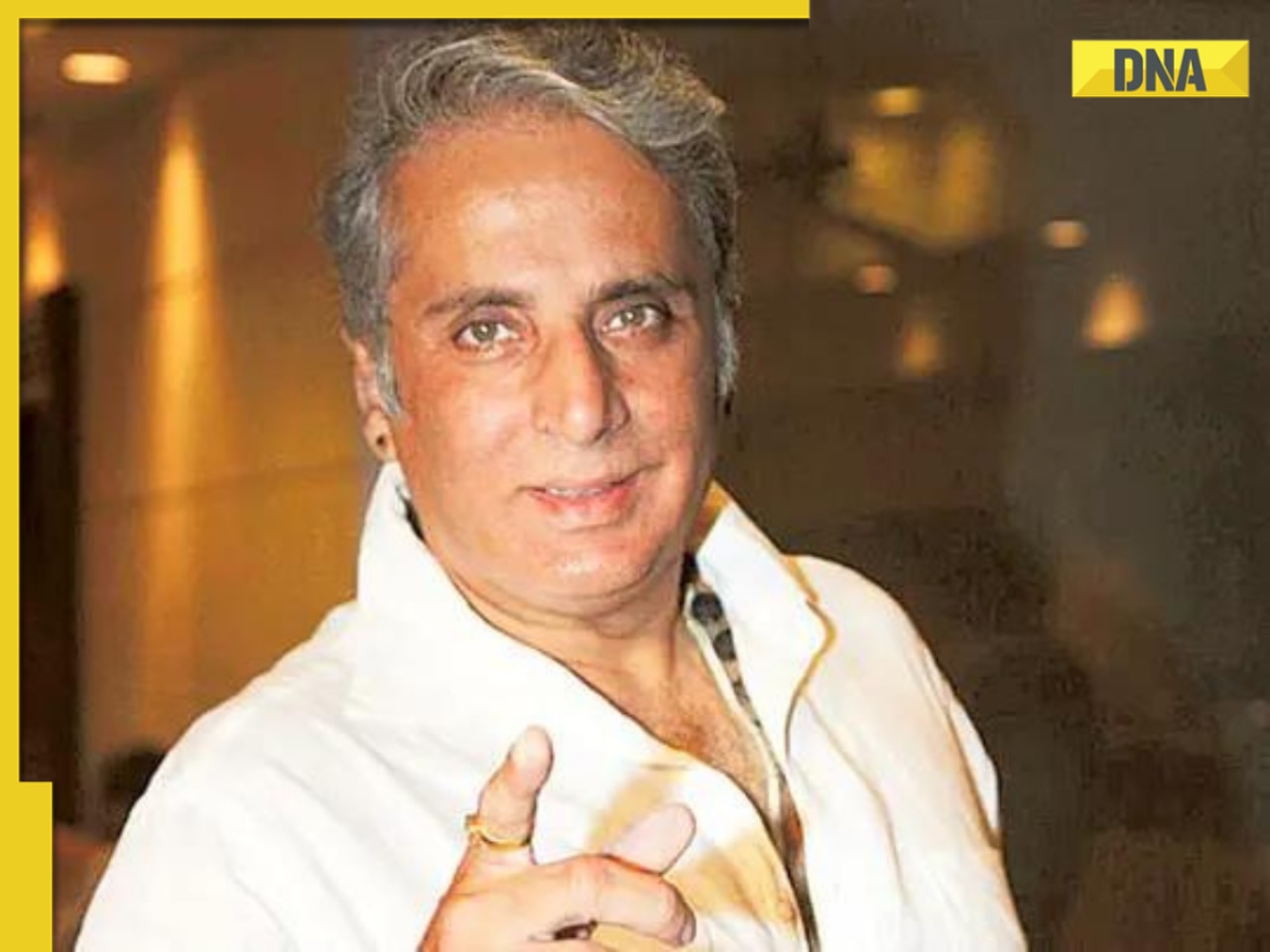

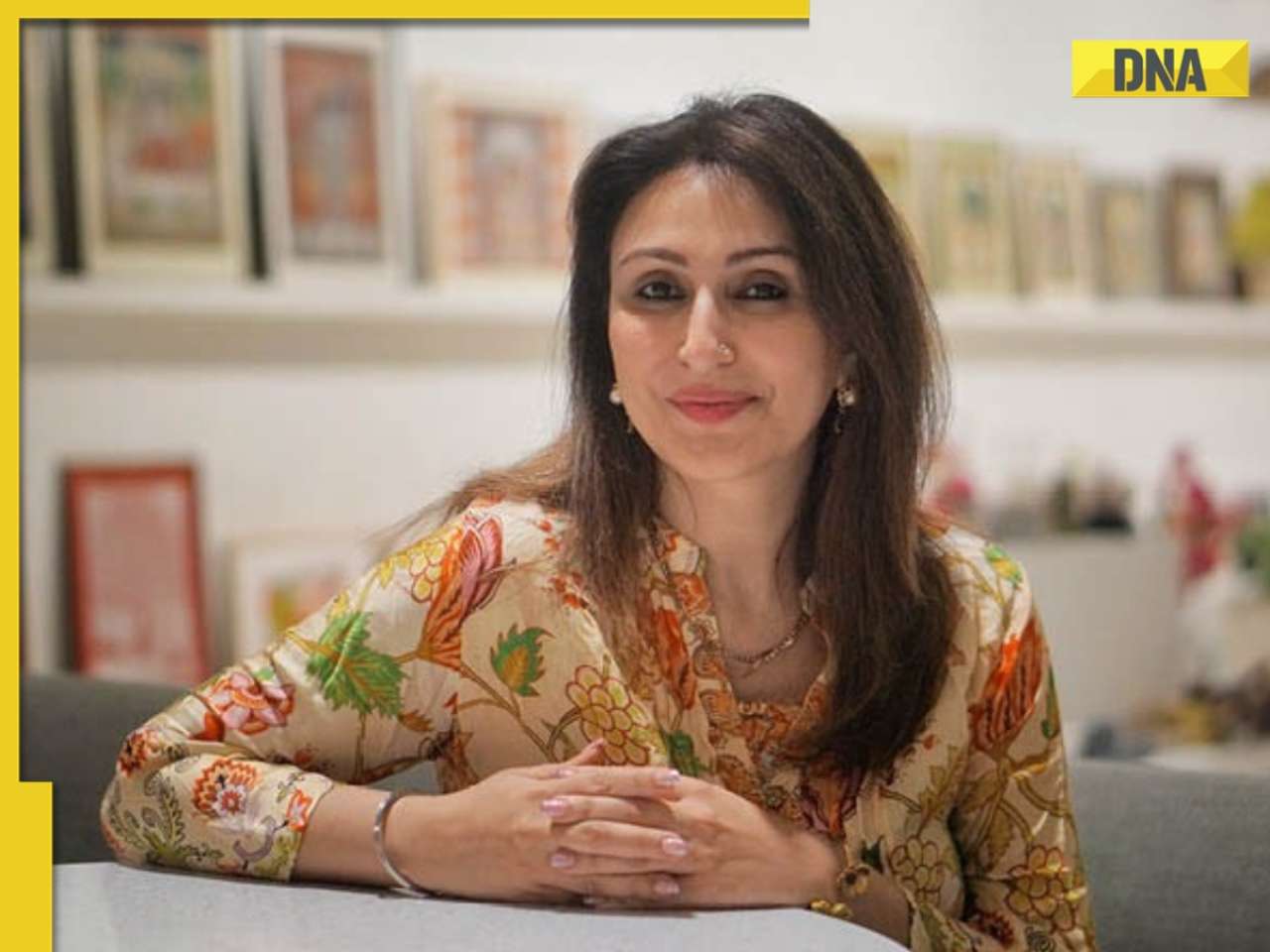
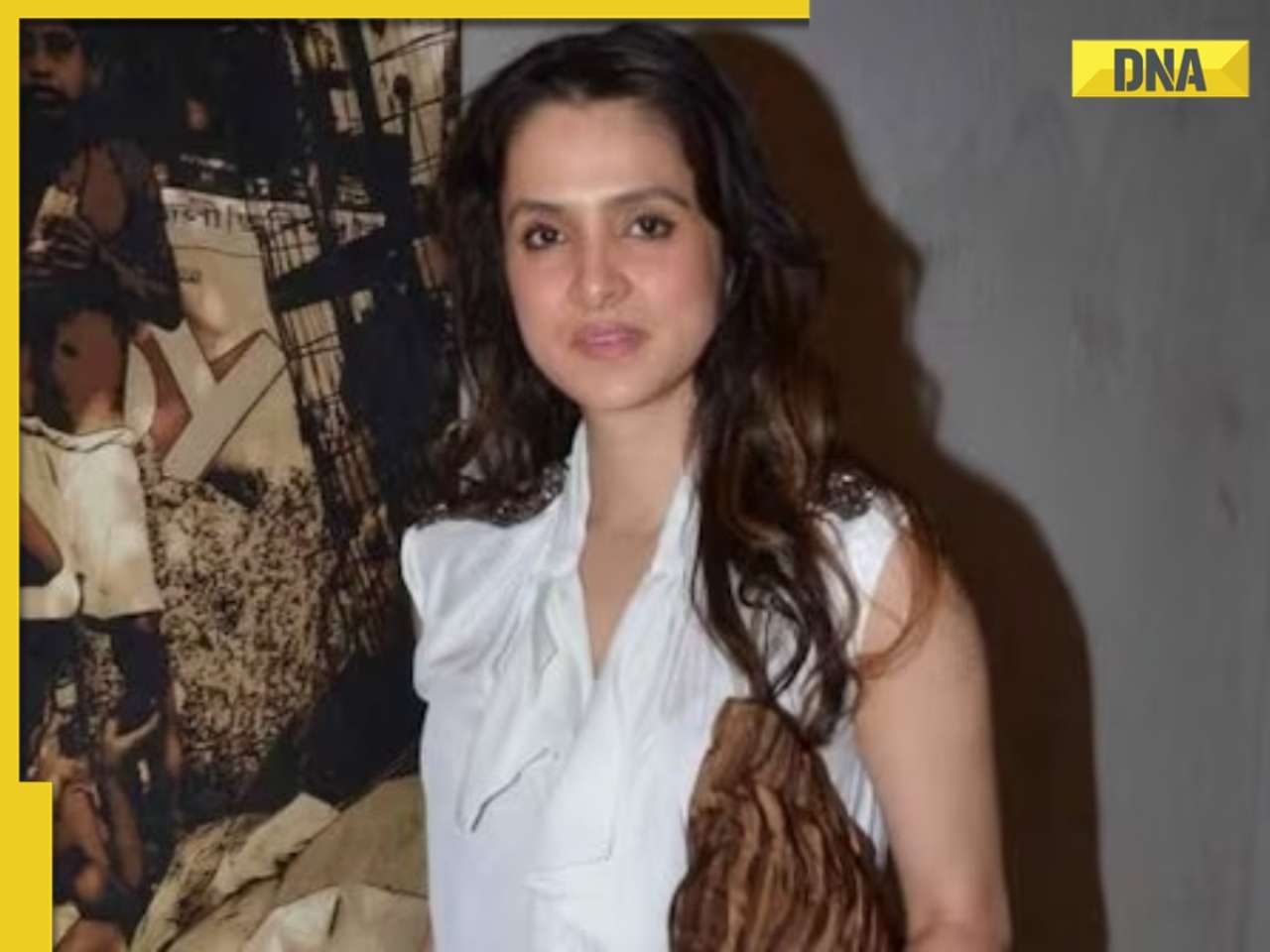
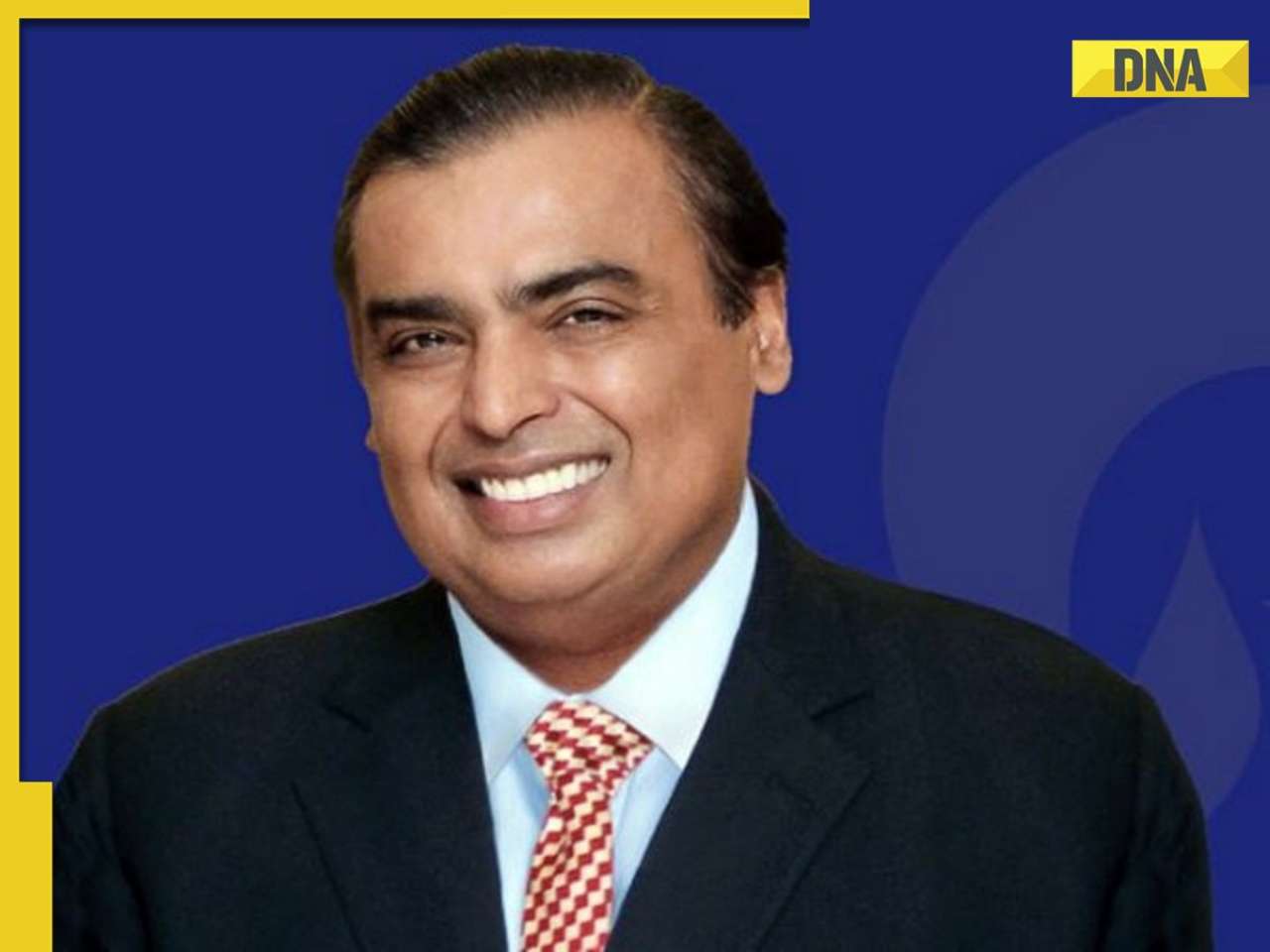
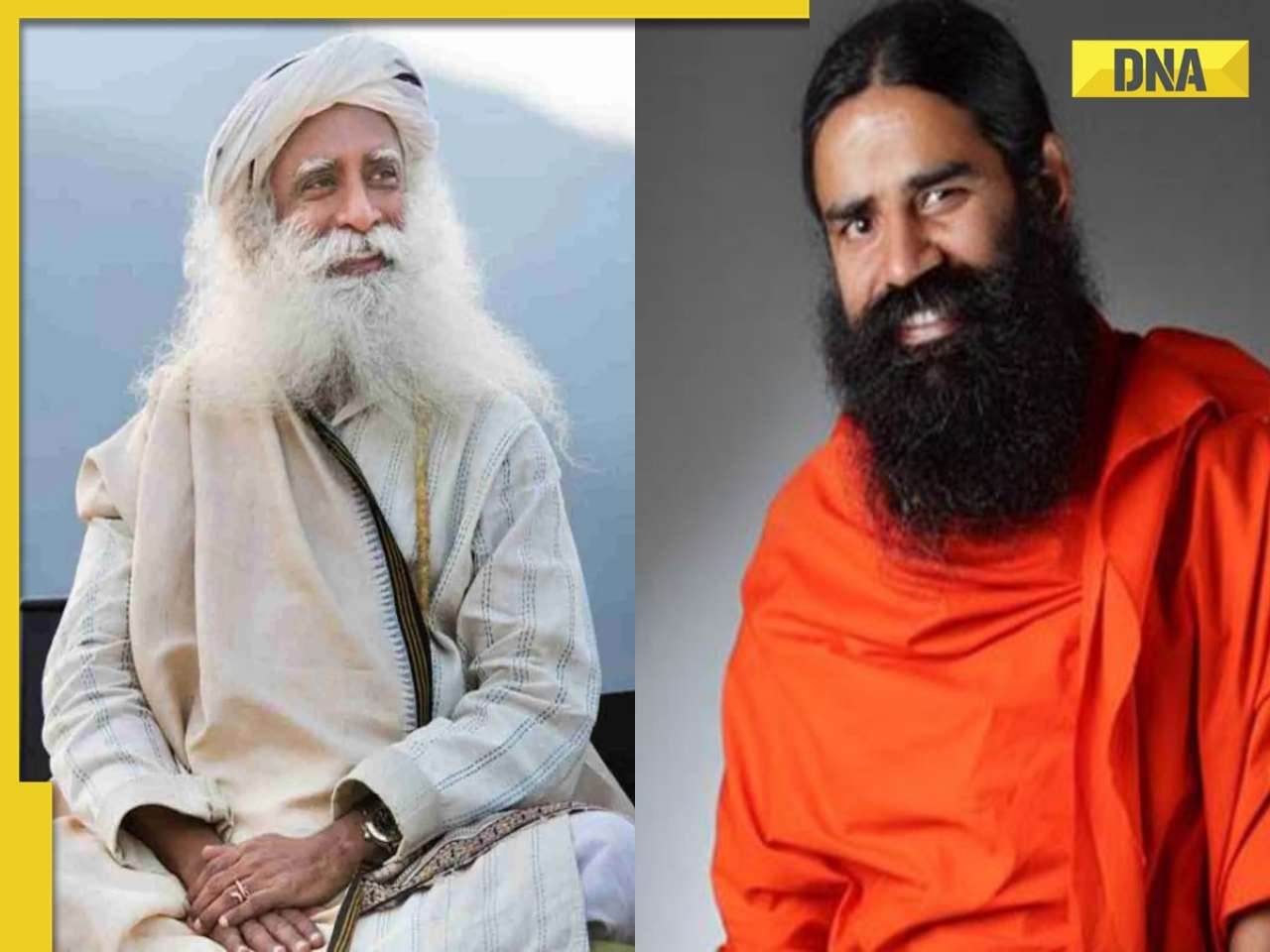
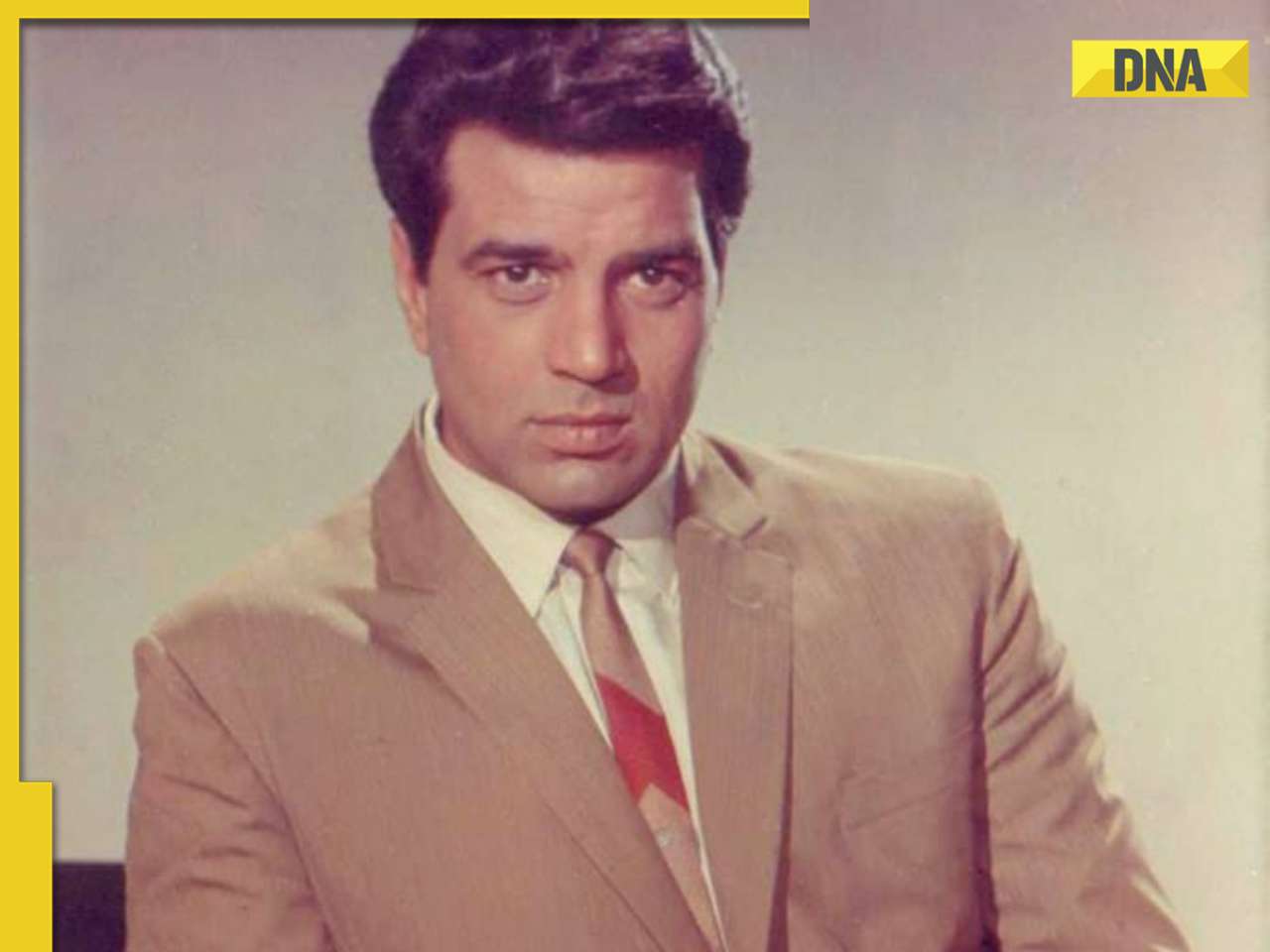
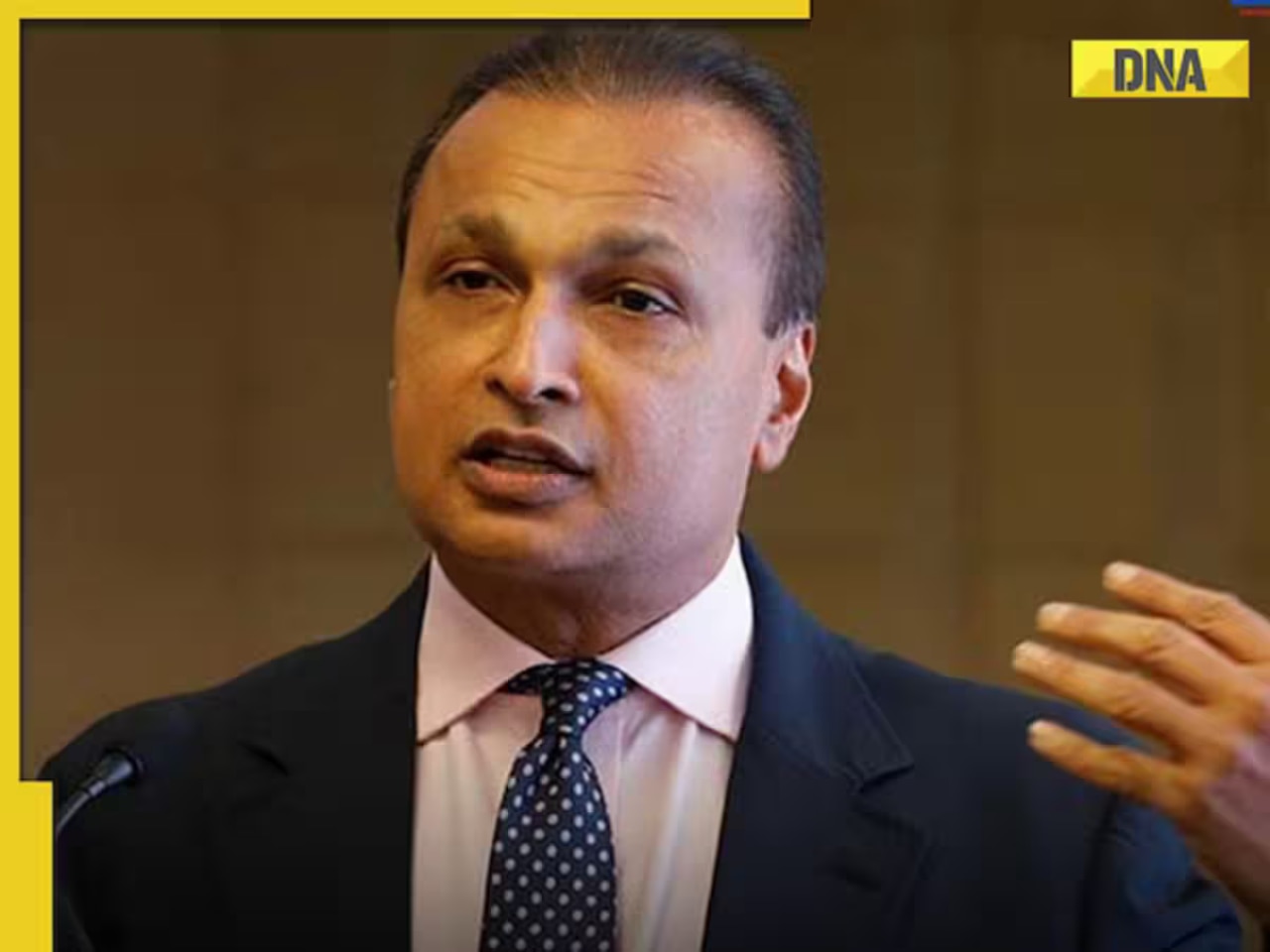




)
)
)
)
)
)